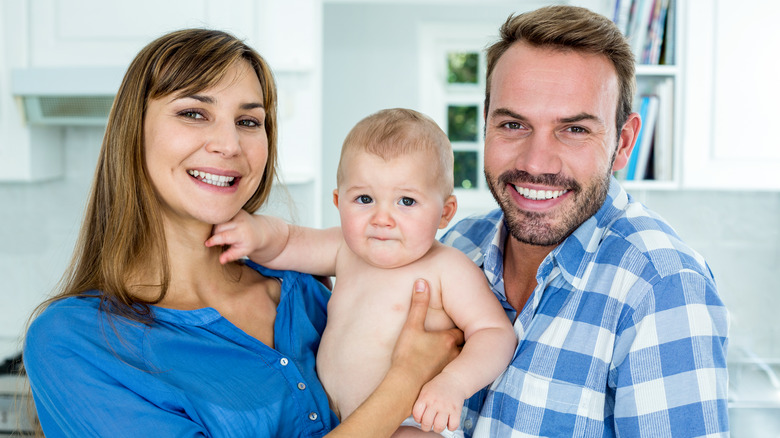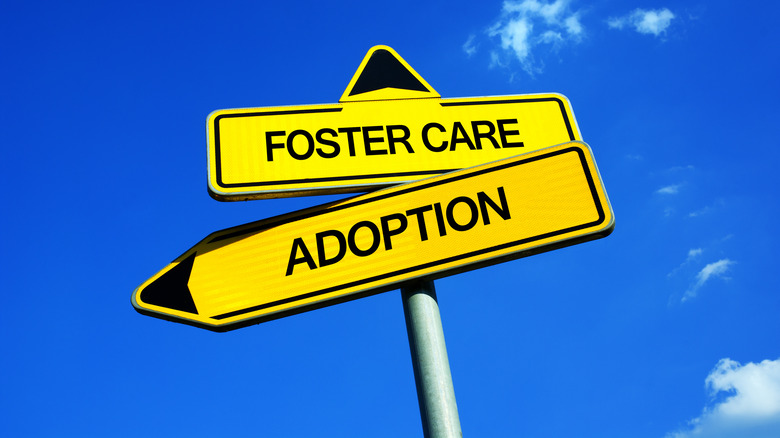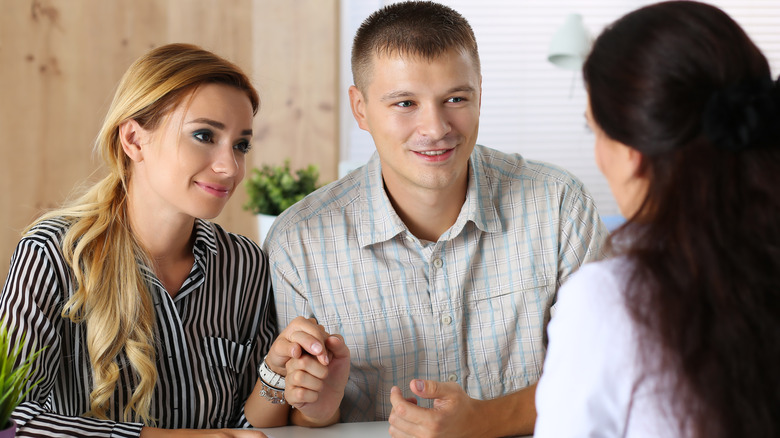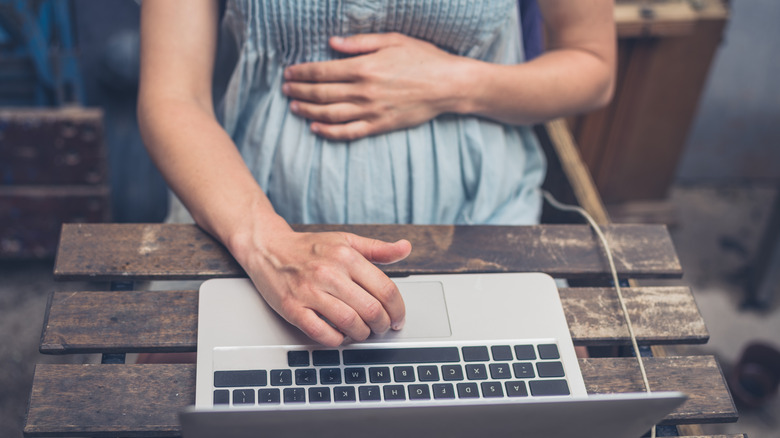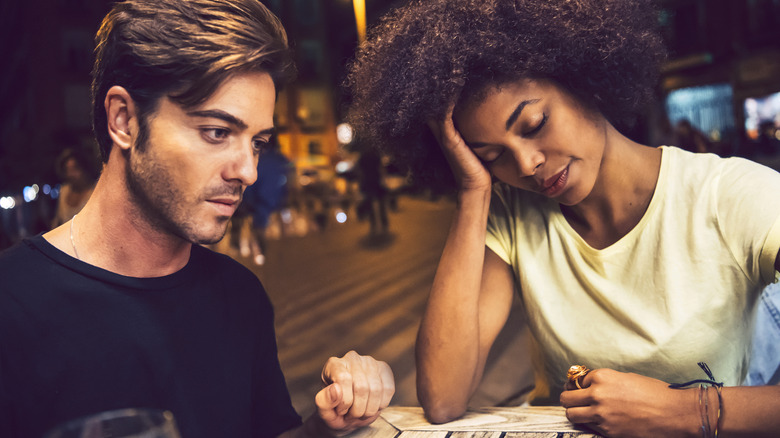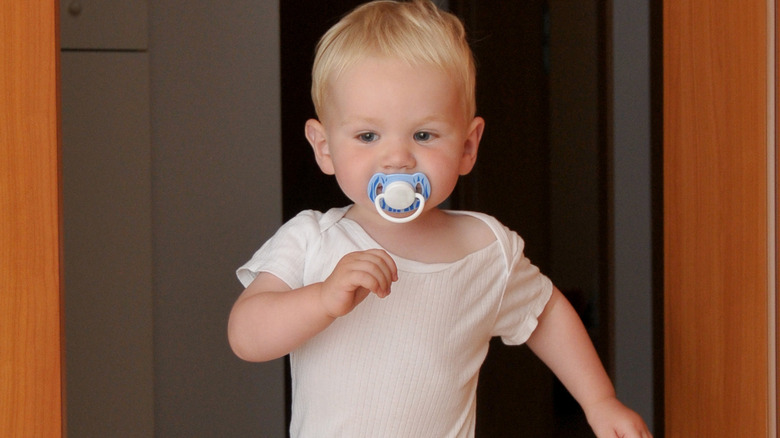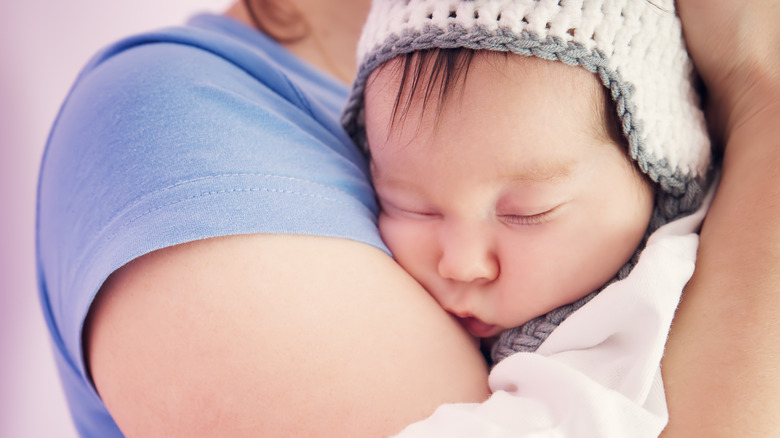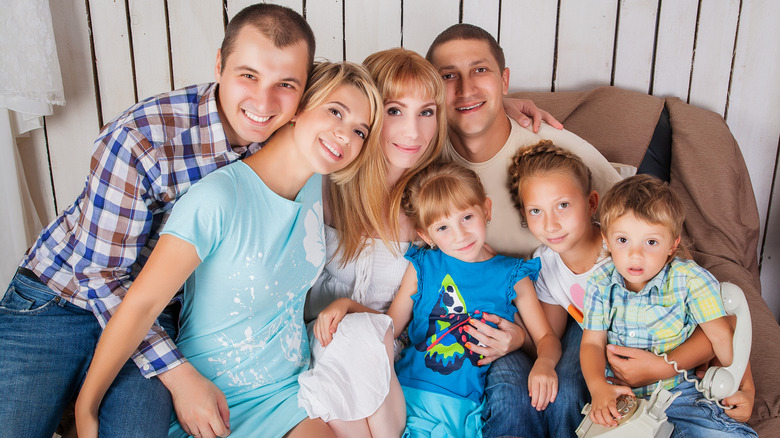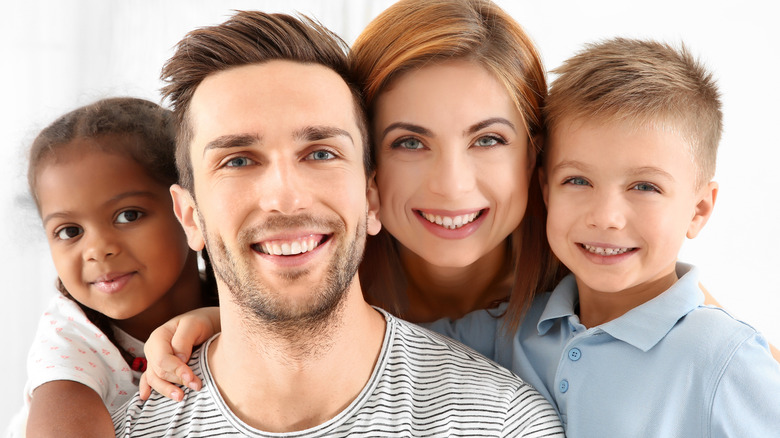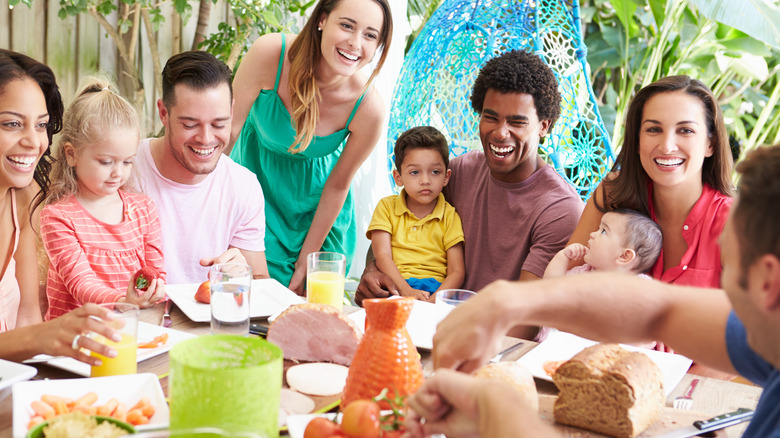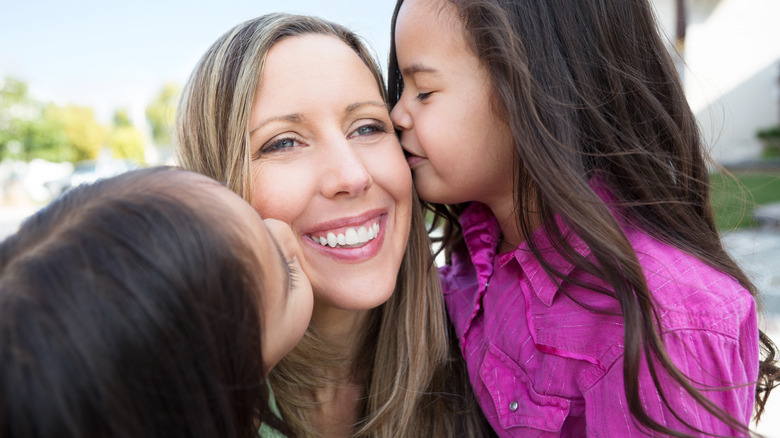What It's Really Like When You Decide To Adopt
According to ChildWelfare.gov, adoptions in the United States are decreasing. In their adoptions trends report, they note that 119,514 children were adopted in 2012, compared to 139,647 adopted children in 2008. That's a 14 percent decrease.
While it's unclear if this decrease is due to myths about adoption or other reasons entirely, I wanted to know what it's really like to go through the adoption process, in order to help couples and single people alike understand the challenges and benefits of adopting.
So I spoke to four different women, each with different stories about why and how they decided to adopt.
Making the decision
Like the decision to have biological kids or not, some women know their entire lives that they want to adopt. For others, it's a decision born out of necessity when conventional methods don't work. Laura Loffredo had never even thought about adopting until after six years and eight failed rounds of fertility treatments. "Physically, mentally, [and] emotionally [I] knew I was done trying to have children naturally," Loffredo said. "If I would have known how wonderful [adoption] was, I would have bypassed those six years of treatments." Ultimately, Loffredo adopted a baby girl, followed by a baby boy three and a half years later.
Sometimes, however, the decision to adopt kind of just happens. Kate Walker and her husband were practically newlyweds when a young woman who was herself in foster care contacted them to save her unborn baby from also being placed in foster care. "A girl that I knew through church, her mother was a foster parent and had a foster child who was 18, but pregnant, so she was in foster care until she had the baby. They were going to take the baby and put the baby in foster care," Walker told me. "She had been raised in foster care herself and didn't want that for this baby."
Walker said the girl called her out of the blue, saying, "You don't have a baby yet, do you want to have a baby?" so they started the process of their first adoption.
People will have opinions
While adoption is much more common now than it was in the '70s and '80s, there are still plenty of people who just don't get it. Rebecca Gruenspan, founder and CEO of RG Adoption Consulting, decided to become a mom on her own as a single woman when she was 38. "I turned to the fertility route; that was about a three year journey," she said. "After that not working, I decided to turn to adoption, not really knowing much about what that looked like."
Gruenspan said not everyone understood what she was doing. "People thought I was nuts for going at this on my own anyway," she said. "Family members thought, 'It's hard enough with two people, how will you do it with one?'" Gruenspan said that even though she knew nothing about the adoption process, once she started, she felt immediate relief knowing this was how she was going to become a mom. "I knew in my heart it would work," she said.
You have lots of options
In speaking with different women who have chosen to adopt, I learned there are many options for not only how to begin the process, but your reasons for adopting as well. Whether you choose to go through an agency, do an independent adoption, or adopt from foster care, the considerations are not only financial but emotional as well. You may also choose to have a domestic adoption from within the United States or an international adoption.
Walker explained to me that once she and her husband decided to adopt the young mother's baby, they chose an independent adoption. "We got a family attorney who helped us through the process. It was much less expensive because there had been a birth mother identified and an adoptive family identified," she said, telling me it was about as expensive as a stepchild's adoption.
You can get support
It was after Gruenspan decided to adopt on her own that she realized that even if she wasn't doing it with a partner, she didn't have to truly do it alone. "Through networking and starting to share my story with people someone mentioned an adoption consultant. I knew that after all the fertility I had gone through, I wanted to find my 'easy button' someone to tell me what to do," she said. "I gave [the consultant] a call...She said, 'I'll hold your hand. I'll tell you exactly what to do.'"
Just nine months after that conversation with her consultant, Gruenspan welcomed her baby into her home. About two years later, Gruenspan started her own adoption consulting business. "A lot of people still don't know they have options when it comes to adoption," Gruenspan told me. "Most people just go to their local adoption agency and sign up. A lot of times you don't even know the right questions to ask so you end up on a list for three years with nothing happening."
"I really think it's important for people to know their options and know they don't have to try to navigate this on their own. It's so overwhelming. Even if they do it independently, there are resources out there," she said. "Trying to navigate adoption on your own is a huge undertaking. It's not about you being a good researcher or not, it's about knowing what questions to ask. You typically wouldn't know that unless you've been through it, or intimately involved with someone who has."
It is expensive
"On average I tell people to expect between $35,000-45,000. It can be more or less, but that's the general average," Gruenspan told me, adding that adoption costs can break out in a number of different ways. If you choose to go through an agency, there will be an agency fee. There will also be costs for the expectant mother's medical care. Depending on the situation, you might also be paying for the expectant mother's transportation to and from appointments, money for groceries, setting her up with a doctor, arranging insurance, providing a cell phone so she can communicate with the agency, and possibly even providing her with a safe place to live.
For Laura Loffredo, this was the most surprising thing. She told me that while she was lucky she and her husband are savers and had the money for it, she started panicking at the thought of what they would have done had they not been savers. "I started thinking about that and getting upset about it. I was thinking about so many people out there who have exhausted their money with fertility treatments and have nothing."
She put words into action, creating the Adoption Hope Foundation to help people pay for adoption. "We became a 501(c)(3) in 2015, we gave our first grants out in January 2016. So far we've given about $50,000 in grants to families in Connecticut." She said, "Get whatever resources you can. There are places out there...financial help, whatever it is."
You'll need a home study
Regardless of what type of adoption you're planning for, you'll need a home study. This is the way that adoption agencies and courts know that you're eligible to adopt. Essentially, it's legal clearance. Everything from your criminal record to your personal finances and even your relationships will be fair game. This can be a long process, so do it early. It's also important to know that these do expire and you'll need a new one if your situation changes.
"There's a period of three to five months of ramping up and getting started to get to the point where you can apply to be an active waiting family," Gruenspan told me, adding that in addition to a home study, you might be required to complete education hours or other training as well. The cost of the home study can vary, depending on whether you're adopting through an agency or out of the foster care system.
According to the Factsheet for Families on the Child Welfare Information Gateway, the agencies that help with adoptions from foster care may not charge a fee. Even if they do, it's typically within the $300-500 range and is usually reimbursed once the adoption is finalized. On the other hand, the Factsheet notes that a "private agency or certified social worker in private practice might charge from $1,000 to $3,000 for the home study. Other services (such as an application fee and preplacement services) may be included in this fee."
There has to be a match
Once you're eligible to go through the adoption process, thanks to your successful completion of the home study, there still has to be a match before you can move forward. For domestic adoptions through an agency where you're looking to adopt an infant, this is a decision made by the expectant mother (and possibly biological father). They will decide which person or family they want to raise their child, based on what they know about you from the profile you created. The match also depends on you as well, but it's important to know that if you pass up the opportunity at a potential match, there's no guarantee there will be another one. This goes back to "taking what you can get," but it also raises the question about why you're adopting.
"You need to figure out what fits your family and [whether you are] looking for your needs or the needs of the child," said social worker and mother of three adopted children Jill Johnson-Young. She adopted all three of her children from foster care because, as she told me, "My heart has always been with — if you're going to adopt, there are already kids here who need homes." In cases of foster adoption, there still has to be a match, but this decision is more often one that's made by the county or court. Johnson-Young also emphasized that if you're looking for an infant, don't totally pass on the foster system. "There are lots of infants in foster care too," she said. "I advocate foster adoption at all times because those are the children who are already here. They need a family and every kid should have that. That's an inherent right."
Regardless of the type of adoption you pursue, remember that a match doesn't necessarily mean that adoption is a sure thing because, unfortunately, sometimes things fall through.
There's risk involved
The rules for adoption vary from state to state and one place this is particularly important is when it comes to the birth mother's ability to change her mind. Gruenspan told me that in some states, the birth mother has just hours after delivery to sign the paperwork and once she does, it's irrevocable. In other states, it can be as long as 90 days (three whole months) from the time she gives birth. This means there's a chance that even after you've personally signed all the paperwork on your end, and prepared your home for your new baby, that it won't work out.
"Typically an agency will wait until [the expectant mother] is at least 20 weeks along before they will match her to an adoptive family. Some agencies match right away, some wait even longer. On average they want to wait until she's 20-25 weeks," explained Gruenspan. "The longer a match, the riskier it is." Gruenspan also told me that "fall throughs" happen about 23 percent of the time, industry-wide, regardless of how you're pursuing the adoption. "It's really scary when you get matched then you have time to wait before they baby is born, before you see if [the birth mother] is going to sign the papers," Gruenspan said. "Now you have a lot of money invested and you're just nervous about everything. It's the worry and the wait time that's super difficult, and the fear of loss both emotionally and financially. The emotional part can be recovered in some instances quicker than the finances."
Gruenspan also told me that in addition to a birth mother changing her mind, there are more nefarious reasons an adoption might not work out. "There are scammers out there," she said. "You don't see them as much through agencies, but they do slip through. They'll send false records or send photos where they appear pregnant, but really aren't." So make sure you're diligent and prepared for anything when pursuing an adoption.
You get what you get
The women that I spoke to nearly all had this same sentiment: you can't know everything about a child. "The same could be said for the children we bear," said Kate Walker, who has adoptive, step, and biological children. "There are mental illnesses we don't know about. Propensities to addiction we don't know about. There are all sorts of things our children can be inclined toward that we don't have any idea of."
She added that she's heard people advise against adoption because "you don't know where they're coming from" but she says that applies to all families. "People are good at hiding secrets and keeping the 'crazy uncle' locked away," she said. "You just don't know."
Jill Johnson-Young, who adopted her children out of foster care, told me that people are hesitant to adopt from the foster care system for a similar reason. "They're not broken, there's nothing wrong with them," she said. "Kids adopted out of foster care have the same success rate [as kids adopted elsewhere]. It's the kids who grow up in foster care and never get placed who struggle." She went on to add that while foster kids may have challenges, so do all kids. "Even if they are drug-exposed, it doesn't make them damaged. You just have to give them the support to overcome the challenges," she said. "It's not like birth kids are going to be perfect. You get what you get."
There's nothing like the moment you become a mom
The best part of adopting, according to all of the women I spoke to, is becoming a mom either for the first time after lots of trials and tribulations with fertility treatments, or even for the second, third, or fourth time. "It's that moment when you become a mom and it's so surreal," Gruenspan said. "For me, half my life was spent single, dreaming about being a mom. Then you stick this child in my arms and suddenly I'm a mom." She said that even though the day you're called and told you've matched is great, nothing compares to it actually happening. "Once those papers are signed and that baby's in your arms, that trumps everything."
Loffredo agreed, confiding in me that when she first decided to adopt she was worried about whether she would love the baby like her own. "Looking back, I can't believe I thought that," she said. "The second I held her, that was my baby."
Blended families present challenges and benefits
Kate Walker, who has adoptive, step, and biological children, knows all about blended families. After adopting two daughters with her husband when she was in her 20s, he was tragically killed in a work accident. She met her now-husband a couple of years later and he brought two of his own daughters into the mix. Because she had tried fertility treatments in the past (unsuccessfully), she and her second husband didn't use birth control and Walker immediately got pregnant. Shortly after that, she got pregnant again. Then, while on birth control, she got pregnant for a third time. Her husband, who was in the military, was then deployed to Afghanistan. While he was home on leave, Walker got pregnant for a fourth time and had the child while her husband was deployed.
"When he came back I went on birth control again and got pregnant again," Walker told me. "At that point we gave up and decided whatever is going to happen is going to happen." Walker added, laughing, "There are 11 all together. It's been a wild and crazy ride."
As unique as their situation is, Walker told me that it hasn't been as big of a talking point as you might think. "For all of [the kids] there's been an age around six or seven where something will be said or done, there's this moment for each of the kids where they go, 'Wait a second! Someone wasn't born out of your stomach? Which one?'" Walker laughed, continuing, "They start looking around going, 'Who is it?' They don't automatically know, which I think is another tell about how kids see the world. They're always kind of surprised."
You need to honor their history
Whether you adopt a child from the same cultural and racial background as your own, or a child from a completely different background, you'll need to acknowledge and honor their history. "[Adoptive parents] need to be very secure in the fact that they're the parents, but the child has a birth family they came from and that family needs to be honored as well," said Johnson-Young, explaining that adoptive children are going to have questions.
"Hopefully you can have a picture you can show them. Or if you can maintain some ties to the birth family, that's great. You've got to be able to celebrate those ties and be grateful for the history and be secure that they're your kids too."
Walker emphasized this as well when telling me about the relationship she had with the mother of one of her adoptive children. "I wouldn't trade the relationship with her for anything," she said. Walker was also very close with her second daughter's birth mother who tragically passed away just this past February. "I took my daughter who is now 18 and we went to the funeral and she got to meet all of her birth family. They're all coming down now for her graduation in May, all of the members of her birth family."
It takes a village
Just as you may need help initiating the adoption process (whether through a consultant, agency, or social worker) and you may need help financially, the entire experience of adoption requires support. "We created a village, you need a village. You need people," said Johnson-Young. "You need to have date night. You need to have people you can call. You need to be around other people who adopted. You need people of the heritage of your kids too, so they're seeing examples."
Loffredo said that while she only knew one couple who had adopted before her, now she knows 20. "You kind of find each other," she said.
You won't regret it
If anything has been made clear by these four women's experiences, it's that adoption takes a lot of time, patience, and money. And all of the women I spoke to agreed that it's worth it.
"Take it one day at a time. Don't get overwhelmed. There's a lot of paperwork and there's a lot to do in the process, but look at one thing you have to do at a time," said Loffredo. "Just trust the process. It's a leap of faith and you just have to go forward and trust the process. I feel like what's meant to be will happen."
Walker agreed, even though her life with 11 kids isn't what she had planned. "I've never been sorry. I've never been sad," she said. Jill Johnson-Young told me that having adoptive kids is more like having biological kids than we realize. "I don't think it's any more complicated than having birth kids. I work with parents of birth kids too, I don't think the problems are any worse with one or the other. They're just different," she said. "I think adoption is the best way to grow a family."
